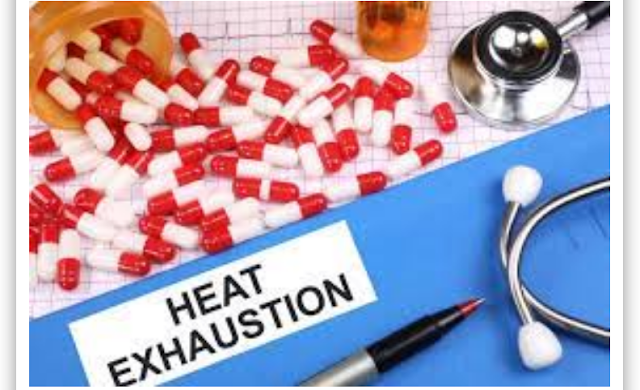As the temperatures rise during the summer months, heat-related illnesses become a significant concern. One such condition is heat exhaustion, which can occur when the body overheats due to prolonged exposure to high temperatures or intense physical activity. Heat exhaustion requires immediate attention and appropriate first aid to prevent it from escalating into a more severe condition like heatstroke. In this article, we will discuss what to do and what not to do when providing first aid for heat exhaustion.
Recognizing Heat Exhaustion:
Heat exhaustion can affect anyone, but it is more common in
individuals who work or exercise outdoors, older adults, and those with chronic
health conditions. Recognizing the signs and symptoms of heat exhaustion is
crucial in providing timely assistance. The common indications include:
- Heavy
sweating
- Weakness
and fatigue
- Dizziness
or lightheadedness
- Headache
- Nausea
or vomiting
- Muscle
cramps
- Cool,
moist skin with goosebumps despite the heat
What to Do:
- Move
to a cooler environment: If you suspect someone is experiencing heat
exhaustion, it is essential to get them out of the heat immediately. Find
a shaded area or an air-conditioned space to provide relief from the high
temperatures.
- Encourage
hydration: Give the affected person cool, non-alcoholic beverages to
drink. Water or sports drinks with electrolytes can help replenish fluids
and restore the body's electrolyte balance.
- Loosen
clothing: Remove or loosen any tight or unnecessary clothing to facilitate
better air circulation and aid in cooling the body.
- Apply
cool water: Wet the person's skin with cool water and use a fan or create
air movement to enhance the cooling effect. Applying cold packs or wet
towels to the neck, armpits, and groin area can also help bring down the
body temperature.
- Elevate
the legs: If the person feels faint or lightheaded, have them lie down and
elevate their legs slightly to improve blood flow to the brain.
- Seek
medical assistance: While providing first aid for heat exhaustion can be
helpful, it is crucial to seek medical attention, especially if the
symptoms worsen or do not improve within 30 minutes. Healthcare
professionals can assess the individual's condition and provide
appropriate treatment.
What Not to Do:
- Do not
ignore the signs: Heat exhaustion should never be taken lightly. Even if
the symptoms seem mild, it is important not to overlook them. Prompt
action can prevent the condition from escalating into a life-threatening
heatstroke.
- Avoid
exposure to heat: Do not allow the person to remain in a hot environment
or engage in strenuous activity. Continued exposure to high temperatures
can worsen the condition and increase the risk of heatstroke.
- Do not
give alcohol or caffeine: Alcoholic and caffeinated beverages can
contribute to dehydration, worsening the symptoms of heat exhaustion. It
is best to provide cool water or electrolyte-rich drinks instead.
- Avoid
rapid cooling methods: While it may be tempting to use ice or ice-cold
water for cooling, it is not recommended. Rapid cooling can constrict the
blood vessels and interfere with the body's natural heat dissipation
process. Stick to cool water or moist towels for gradual cooling.
Conclusion:
Heat exhaustion is a serious condition that requires
immediate attention and proper first aid. By recognizing the signs and taking
appropriate action, we can assist individuals experiencing heat exhaustion and
prevent it from progressing to heatstroke. Remember to move the person to a
cooler environment, encourage hydration, loosen clothing, apply cool water, and
seek medical assistance when needed. Avoiding certain actions like ignoring the
signs, exposure to heat, and inappropriate beverages can help ensure a safe and
effective response to heat exhaustion. Stay vigilant, stay cool, and prioritize
the well-being of yourself and others during hot weather conditions.
Related Post
How to Cool Down After Heat Exhaustion
What to Do if You Have Heat Exhaustion
What is Health Insurance &How to Choose the Right Plan?
Fitness Hacks: Expert Tips to Achieve Your Health Goals Effortlessly






